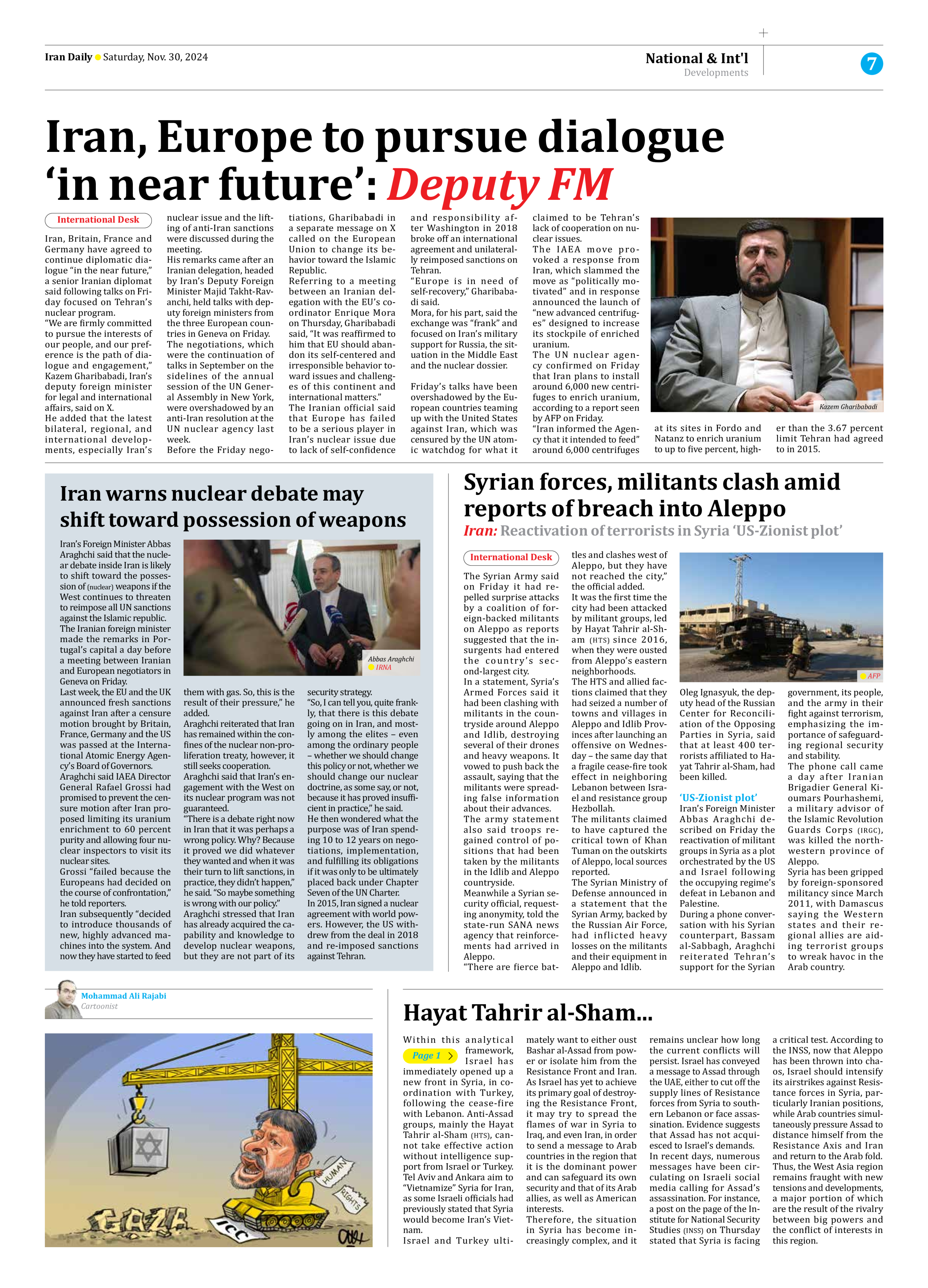
Iran, Europe to pursue dialogue ‘in near future’: Deputy FM
Iran, Britain, France and Germany have agreed to continue diplomatic dialogue “in the near future,” a senior Iranian diplomat said following talks on Friday focused on Tehran’s nuclear program.
“We are firmly committed to pursue the interests of our people, and our preference is the path of dialogue and engagement,” Kazem Gharibabadi, Iran’s deputy foreign minister for legal and international affairs, said on X.
He added that the latest bilateral, regional, and international developments, especially Iran’s nuclear issue and the lifting of anti-Iran sanctions were discussed during the meeting.
His remarks came after an Iranian delegation, headed by Iran’s Deputy Foreign Minister Majid Takht-Ravanchi, held talks with deputy foreign ministers from the three European countries in Geneva on Friday.
The negotiations, which were the continuation of talks in September on the sidelines of the annual session of the UN General Assembly in New York, were overshadowed by an anti-Iran resolution at the UN nuclear agency last week.
Before the Friday negotiations, Gharibabadi in a separate message on X called on the European Union to change its behavior toward the Islamic Republic.
Referring to a meeting between an Iranian delegation with the EU’s coordinator Enrique Mora on Thursday, Gharibabadi said, “It was reaffirmed to him that EU should abandon its self-centered and irresponsible behavior toward issues and challenges of this continent and international matters.”
The Iranian official said that Europe has failed to be a serious player in Iran’s nuclear issue due to lack of self-confidence and responsibility after Washington in 2018 broke off an international agreement and unilaterally reimposed sanctions on Tehran.
“Europe is in need of self-recovery,” Gharibabadi said.
Mora, for his part, said the exchange was “frank” and focused on Iran’s military support for Russia, the situation in the Middle East and the nuclear dossier.
Friday’s talks have been overshadowed by the European countries teaming up with the United States against Iran, which was censured by the UN atomic watchdog for what it claimed to be Tehran’s lack of cooperation on nuclear issues.
The IAEA move provoked a response from Iran, which slammed the move as “politically motivated” and in response announced the launch of “new advanced centrifuges” designed to increase its stockpile of enriched uranium.
The UN nuclear agency confirmed on Friday that Iran plans to install around 6,000 new centrifuges to enrich uranium, according to a report seen by AFP on Friday.
“Iran informed the Agency that it intended to feed” around 6,000 centrifuges at its sites in Fordo and Natanz to enrich uranium to up to five percent, higher than the 3.67 percent limit Tehran had agreed to in 2015.







